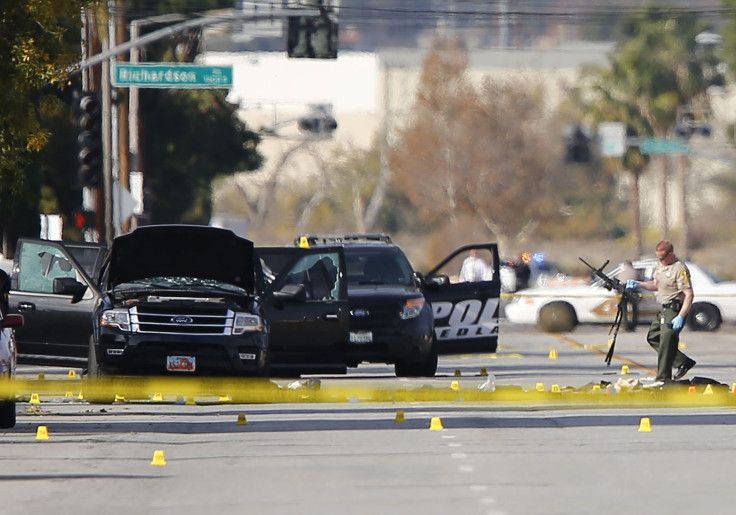San Bernardino Shooter Used Encrypted iPhone To Contact Victims: Feds

San Bernardino shooter Syed Farook used the iPhone that’s central to a bitter dispute between Apple and federal investigators to contact some of the 14 revelers he and wife Tashfeen Malik shot to death at a holiday party less than a month before Christmas last year.
That’s one of the more chilling revelations contained in a motion filed late Friday by the Department of Justice asking a judge to order Apple to overcome the phone’s privacy settings so investigators can retrieve data stored on the device.
“The government has reason to believe that Farook used that iPhone to communicate with some of the very people whom he and Malik murdered,” Department of Justice attorneys argued in papers filed in U.S. District Court in Los Angeles. “The phone may contain critical communications and data prior to and around the time of the shooting.”
The government’s motion to compel is the latest salvo in a case that’s pitting privacy advocates against security hawks not just in the U.S., but around the world. On Friday, GOP presidential frontrunner Donald Trump weighed in, calling for a boycott of Apple.
Earlier this week, Apple CEO Tim Cook published an open letter in which he vowed not to create a workaround that would give the Federal Bureau of Investigation access to data stored on the encrypted phone, which was issued to Farook by his employer and ran on the Verizon network.
Cook said creating a workaround for the password protection on Farook’s iPhone 5C would put the privacy of all iPhone users at risk. “The U.S. government has asked us for something we simply do not have, and something we consider too dangerous to create,” Cook wrote.
But in their Friday filing the feds laid out their strongest argument yet for why they need access to Farook’s phone to fully investigate the terror plot and find any co-conspirators. They noted Farook’s iCloud data had not been updated since Oct. 19, meaning any information generated subsequently remained only on the phone. “There may be critical communications and data prior to and around the time of the shooting that thus far has not been accessed,” the DOJ said.
The feds said information obtained from other tech services already have given them crucial information about the case. They noted a Facebook post associated with Malik praised Islamic State group leader Abu Bakr al-Baghdadi, raising strong suspicions the killers were affiliated with or inspired by the terrorist group.
Now they want Apple to open Farook’s iPhone, and said the company and its throngs of computer geniuses have the means to do so. In earlier discussions, the feds said Apple “conceded that it had the technical capability to help.”
Apple’s intransigence stems not from privacy concerns but from a desire to promote its products, the DOJ now says. “Apple appears to object based on a combination of a perceived negative impact on its reputation and marketing strategy,” court filings said.
Representatives for Apple did not immediately respond to a request for comment. A hearing on the DOJ’s motion is set for March 22 in Los Angeles.
© Copyright IBTimes 2024. All rights reserved.






















